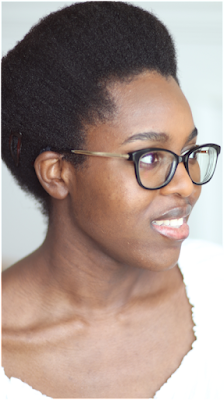Francesca Leader interview
AUTHOR INTERVIEW
When did your love of books begin?
I didn't actually begin reading independently until I was well into first grade, and for a while the teachers were worried about me--they thought I might have some sort of developmental delay. Of course it got my dander up when they moved me into a special education class, so I went and checked a Nancy Drew out from the library and was reading it fluently within a couple of days. I think the real issue was that I'd grown up listening to stories more than looking at them. I had this wonderful set of fairy tales on cassette called the Spoken Arts series, and I was always playing those tapes. I actually wore out one or two of my favorites. I had many of the stories memorized verbatim--British accent and all--and used to go around reciting them to people when I was as young as three or four, probably. So I was verbal from quite early on, but not really interested in the written word. I only started reading books once I was pushed into doing it, I guess. But once I discovered the unique magic of written language, I was hooked.
When did you start to have the wish to become an author?
I started writing and illustrating my own picture books in first grade, and I've been doing variations on that ever since, albeit with some pretty long interruptions. I don't think I ever set out to become an author. I just wrote because it felt like such a natural thing to do--how could you not write, you know?
How have you found the process for becoming an author?
The process has been interesting. I tried and failed for many years, starting in my late teens, to write serious fiction and poetry, and pretty much gave up on it all in my mid-twenties, deciding I didn't have it in me to meet my own standards for "good" creative writing. I spent over a decade intensively studying Japanese language and literature, in which I got my M.A. in 2006, thinking that if I couldn't write great things, at least I could understand and translate them for others. I got pretty burned out in grad school, though, and took about a ten-year hiatus from anything at all intellectual. Since then, I feel like I've finally reached a point in my life where I have a sufficiently well-aged reserve of experiences from which to draw. I think that's what tipped me over the edge between trying to write/publish seriously and actually doing it.
What would you say to those wanting to become an author?
If you're stuck as a writer, it probably means your mind is still hungry for input. Take breaks from writing--long ones. Years. Get away from your screen. Go out and do things. Don't dismiss yourself as a writer because you haven't written anything yet. Be patient, and allow yourself time to process. I'm not saying you have to grow old before you start writing well, but it certainly helped in my case.
Tell us about your book/books:
I'm currently pitching my first novel, "Life After Japan," which draws heavily on the 2 1/2 years I spent living in Japan in my early twenties. The protagonist of "Life After Japan" is a naive young college student who goes to Japan to teach English for a year, and is sexually assulted, in her own apartment, within days of arrival. This traumatic event complicates her relationship with the land she believed could be her spiritual home, and sends her on a journey in pursuit of healing as well as justice. Prior to the assault, my protagonist is an idealistic person, very much in love with everything about Japanese language and culture, and she's in no way been prepared for the dangers that await her. She's been told that Japanese people love Americans, and that Japan is one of the safest places in the world. Both these things are generally true, but what's more true is that sexual assault is a rampant, and largely unacknowledged, problem in Japan. Based on my own experience, I suspect that foreign women living in Japan, due to the fetishization of their non-Japanese characteristics, are highly likely to be targeted. So, the book's primary concern is to provide an individualized perspective on the impact of misogyny and racism in Japan. However, the book also highlights many of the beautiful and extraordinary aspects of Japanese culture, most notably the language, which is something the protagonist greatly values. In spite of her traumatic experience, she still feels more at home in Japan, in many ways, than she ever did in America, and exploring that paradox also was important to me.
What do you love about the writing/reading community?
I love how supportive people are of one another's accomplishments. I had no idea, before I got involved in the social media writing community, how much encouragement and favorable feedback I'd be getting from other writers. I've been trying to give back every bit as much as I receive, especially because it can be hard, in those publication dry spells littered with rejections, to maintain the will to keep on submitting.
If you could say anything to your readers what would it be?
Thank you so much for reading my work. There's an embarassment of riches out there to read--more than ever in history--so I really feel privileged to have any amount of anyone's time allocated to reading something that I've written.
Where can people connect with you?
You can find me on Twitter @FrancescaLeader and Instagram @Moon.in.a.bucket.


.jpg)

Comments
Post a Comment